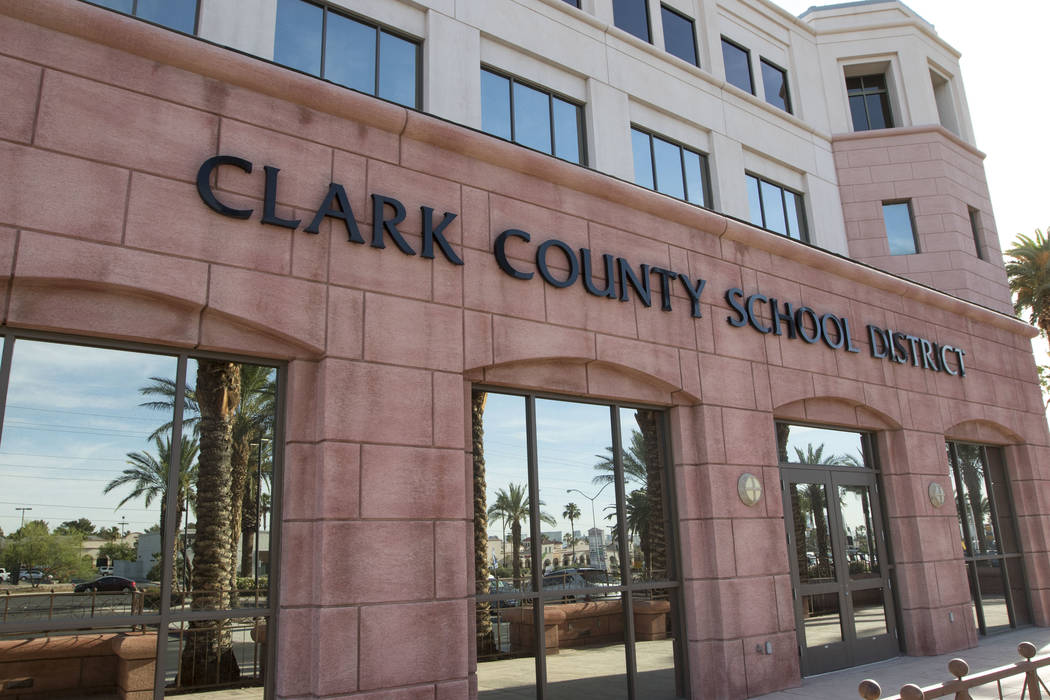Clark County principals, in survey, say they want more control

Clark County principals say they want more control over their campuses, everything from hours the custodians work to whether they use district tech support to fix computers.
That’s according to a survey recently completed by the district as it continues to implement the state-mandated reorganization, which aims to push more money and decision-making into the hands of principals and their school organizational teams.
The reorganization began this fall with the district allocating certain budgetary responsibilities to the principals. The survey is a next step toward increasing their ability to tailor resources to their needs.
“The empowerment piece for me isn’t I want more money,” said Lee Douglass, principal at Kitty Ward Elementary. “Empowerment to me is about the voice.”
More control
At the beginning of the school year, principals completed a survey in which they identified how much control they thought they had over certain areas and how much control they would like to have. The district then identified the eight largest gaps between actuality and aspirations. They were:
— Teacher-student ratio.
— Site-based technicians.
— Instructional design and professional learning division project facilitators.
— Special education-related personnel.
— School custodians.
— English language learning personnel.
— Gifted and talented education teachers.
— Night custodians.
At her school, Russell pointed specifically to English language learner personnel and special education personnel as areas she would like more control over.
This year, for example, she has 25 English language learners out of 800 students. The district’s central office provides her with a strategist to help those students, but she would like the option to have existing staff work with them and use that savings to meet another need.
“There’s the difference,” she said. “The difference of each school and their needs. It’s not one thing for everybody.”
Although some of the areas cited in the survey aren’t obviously linked to student achievement — a principal’s main goal — they can have an impact, said Chester E. Finn Jr., a distinguished senior fellow and president emeritus of Thomas B. Fordham Institue for Advancing Educational Excellence, a conservative think tank.
The custodians are a good example, he said. If a principal decides to hold an after-school or Saturday tutoring program where students have a quiet place to learn, custodial duties factor into that.
“A custodian affects in many ways whether you have that quiet place. Is the vacuum cleaner going at the same time? Are the lights tuned out? Are there a million other distractions? If you don’t have authority over the moving parts, then you’re going to have trouble delivering on your responsiblity,” he said.
Pushing funding down
The district is searching for areas controlled by the central office that can be transferred to schools. At least 85 percent of unrestricted general fund money is required to go directly to schools by Jan. 15 under a deadline in the reorganization law.
Right now, schools control 55 percent of funds and central administration 12 percent. The remaining 33 percent, the district says, is money that is controlled centrally but directly helps schools, including services such as custodians or transportation.
Some of the areas principals want more control over are mandated by state and federal law, which means they wouldn’t have much ability to make changes. But other areas are governed by district policy, and it might be easier to transfer responsibility.
The survey is a jumping-off point for more conversations with principals, said Deanna Jaskolski, a school associate superintendent, and might ultimately lead to policy changes at the district level to allow that money to flow directly to the schools.
“We certainly need to have these conversations sooner rather than later once we gather the information from the principals and communites we serve,” she said.
The idea is that the district ultimately would become a vendor to the schools, leaving principals free to purchase a service from a private company if they could get a better deal. The district would still handle approving vendors, making sure they meet requirements to work in schools.
But that could mean further shrinking of the district’s central office, if enough schools turn to outside vendors.
In an effort to prevent that, the central office is working on providing better customer service, district officials said.
Contact Meghin Delaney at 702-383-0281 or mdelaney@reviewjournal.com. Follow @MeghinDelaney on Twitter.